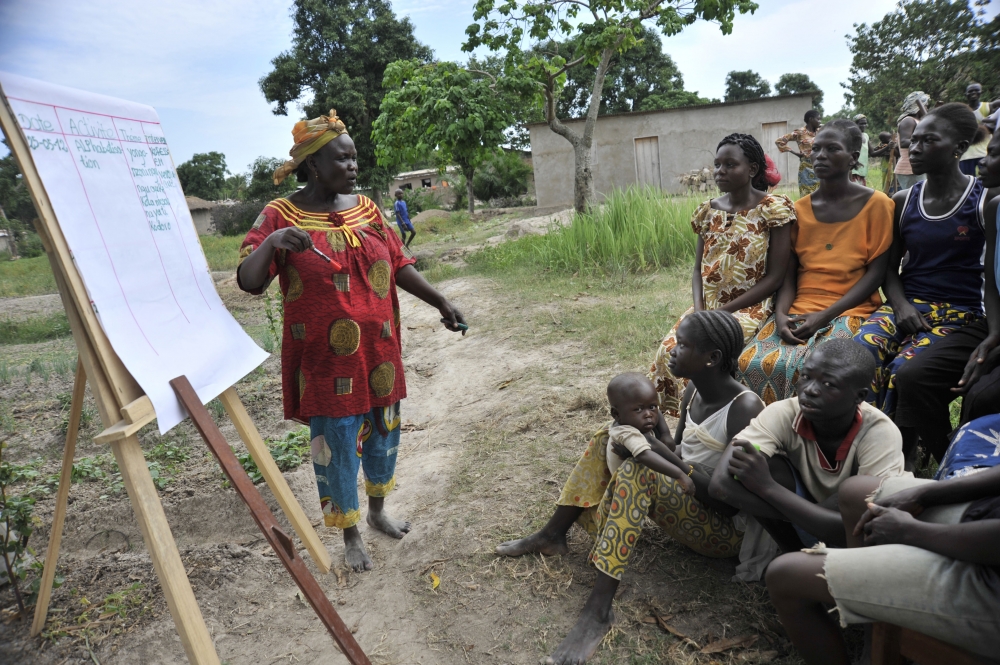FAO has launched a global platform to increase the success of Farmer Field Schools.

Farmer Field Schools are community driven programmes providing agricultural training and education to communities. The programmes are increasing in demand around the world as they improve the ability of smallholder farmers to cope with complex challenges.
Farmer Field Schools typically consist of about 30 people who regularly meet throughout the farming season to discuss common problems and identify solutions. The schools aim to generate knowledge through participation and sharing rather than a single teacher leading the session.
This collaboration and engagement of the whole class allows for innovative social and technical skills to be developed.
FAO set their first Farmer Field School up in the late 1980s; today their projects are present in more than 90 countries with 70 projects in Africa alone. A total of 12 million people have participated in the schools since their creation.
Dan Gustafson, FAO Deputy Director-General for Programmes said:
"Farmer Field Schools contribute to developing sustainable agriculture practices, building on understanding of ecology to manage complex agro-ecosystems, and promote people-centered development…[they] have been generating innovations since they started. Continuous learning and innovations is needed to keep addressing new challenges in agriculture."
Farmer Field Schools encourage the technology transfer approach of traditional agriculture into a broader rural communications service and allow farmers to develop their management skills.
The pressure on the Farmer Field Schools is currently very high as the FAO is relying on them to find simple, affordable and sustainable solutions to tackle the current issue of Fall Armyworm in Africa.
In response to this pressure and the increasing demand for Farmer Field Schools, the FAO has set up the Global Farmer Field School Knowledge Programme with more than 15 partner organisations to share best practice and expertise.
The programme is the first of FAO’s seven global knowledge products that are being developed to encourage sustainability in agriculture. It is hoped that the Global Farmer Field School Knowledge Programme will strengthen the quality of the schools and upscale them.
The Global Farmer Field School Knowledge Programme includes a library of key resources, online profiles of experts, a news service and a global email discussion group with members from more than 100 countries.
Clayton Campanhola, FAO Strategic Programme Leader on Sustainable Agriculture commented:
"The Global Knowledge Products are aimed at promoting innovation and supporting countries in their efforts to integrate production of crops, livestock, forests, fisheries and aquaculture in ways that improve natural resources management, agro-biodiversity, income, livelihoods and adaptation to climate change"
Over the past 30 years the community driven schools have delivered positive results for a range of agriculture issues such as: climate change, soil health, land and water management, livestock, agroforestry, crop-fish systems, disaster risk reduction, nutrition, enterprise development and market access.
The schools have also led to notable social developments as they have improved the soft skills of participants by increasing gender equity and empowering those who rely on rural livelihoods. A key advantage of the Farmer Field Schools is that they rely on a decentralised knowledge that allow solutions to de adapted and improved depending on local ecological conditions.
The introduction of the Global Farmer Field School Knowledge Programme reflects the transition from an input intensive to a knowledge driven approach towards agriculture. Similarly, field schools offer a more people focused approach and foster ecology literacy tools.
Join us for the inaugural Africa Climate Smart Agriculture Summit on 15-16 May 2018 in Nairobi.
If you’d like to stay informed on the latest updates in aid and development, please sign up to the AIDF newsletter.
Image credit: FAO












